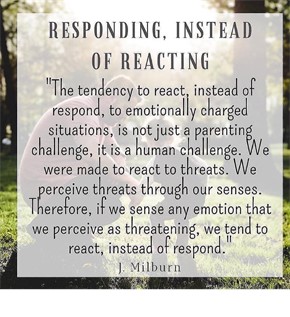Therapeutic Parenting (Part 1)
THERAPEUTIC PARENTING – AN INTRODUCTION
Why do children need therapeutic parenting?
As we have discussed children who have experienced abuse, neglect, loss and not getting their needs are likely to have attachment difficulties. They cannot view themselves, adults and the world in the same way a securely attached child can often leaving them feeling unlovable, anxious and scared. We also know that childhood trauma can have long lasting effects on brain architecture. The repeated stress activation that happens during ongoing abuse or neglect leaves their amygdala constantly sounding the alarm for danger. So, now we have a hypervigilant child always ready for fight, flight or freeze.
“Their brains are hardwired to them believeing they are not safe, even when they are”
To help these children with their recovery we need to parent them a little differently. Therapeutic parenting helps to turn the alarm off and build new neurological pathways. By using a bottom-up approach with a focus on safety, connection and relationships.
What do we mean by Therapeutic parenting?
You’ve probably heard of Therapeutic parenting, but what exactly does it mean? Well, the first thing to note is that it does differ to the traditional parenting we may have either experienced as a child or used to parent our own children. So, it might be the case that there is some learning to do and some open mindedness required of your colleagues and maybe even you! And that’s okay, we don’t know what we don’t know right? The good news is it just takes practice, patience, trust, and a bit of rewiring our own adult brains! The other good news is you don’t need to be a therapist or hold a degree in order to parent therapeutically just enthusiasm, curiosity, resilience, and a whole load of empathy.
All you need is love…
Not quite! Whilst therapeutic parenting requires buckets full of nurture, empathy, acceptance and support that’s that not all we need. When the word therapeutic is mentioned a lot of people conjure up images of soft, gentle or permissive parenting but to truly parent therapeutically we need high structure and high nurture. Children who have experienced trauma and have attachment difficulties obviously need calm, nurturing adults to help rewire their brains. But they also need high levels of routine, structure and limit setting to provide a feeling of predictability and safety.

The Social Control Window
Therapeutic parenting is a way of being, with an underpinning ethos which enables us to build and maintain healthy relationships, resolve difficulties and repair harm when relationships breakdown. It embodies a set of core beliefs, principles and a way of being with people that proactively promotes building a sense of connection.
This model is the cornerstone to underpin relational practice and is an excellent reflective tool when discussing culture within teams.
Neglectful
If our parenting style has low levels of structure and nurture, then this is neglectful. We’re NOT doing anything to meet the child’s needs.
Permissive
If our parenting style has high levels or nurture but low levels of structure this becomes permissive. We may do things FOR the child.
Punitive
If we have low levels of nurture but high levels of structure this becomes punitive. We may do things TO the child.
Therapeutic
If our parenting style has high levels of structure and nurture this is therapeutic. We are working WITH the child.
Lets look at this in terms of a real life example
Example- A child playfighting with a teacher during breaktime.
What would a permissive response look like?
The teacher not stopping them, allowing them to continue, not offering any verbal instruction or laughing it off
What would a punitive response look like?
The teacher pushing the child away, telling them they have no right to touch them, telling them off whilst wagging their finger
What would a therapeutic response look like?
The teacher assertively extracting themselves from the playfight while using ‘PACE’ responses – “woah there! I didn’t see you coming, that was stealthy. But we need to be careful, people can get hurt, including you if we pounce on each other and it gets out of hand!” (Avoiding a sense of rejection). “Let’s not be rough with each other!”
When adults first come into this line of work, they may show a preference to any of these styles depending on their own parenting or lived experiences. Some adults may be very naturally therapeutic, but the ones that aren’t must show a willingness to learn. Working therapeutically with these children is the only way to make them feel safe, secure, and connected.
Something to think about..
Maybe you notice a staff member who is consistently therapeutic becoming more permissive or punitive in their responses. What could be behind that?
To be able to parent therapeutically we must have the ability to regulate our own emotions, stay calm, stay present and think before we respond. If there is anything going on in that person’s life that affects their ability to do that we may see a change in their responses.
It could be anything from a lack of sleep to a relationship breakdown or bereavement. They could be suffering from burnout or empathy fatigue.

It is important to note that in this situation if the adult is stressed their behaviour may be unconscious, they may not have even noticed that they are responding differently. Therapeutic parenting is hard! And even the best of the best are not immune to stress. We must put in immediate support to calm down their Amygdala’s before they can get back to calming down the children’s!
We hope you found this interesting. Join us tomorrow for Part 2 of Therapeutic Parenting.
Only 4 days to go….
